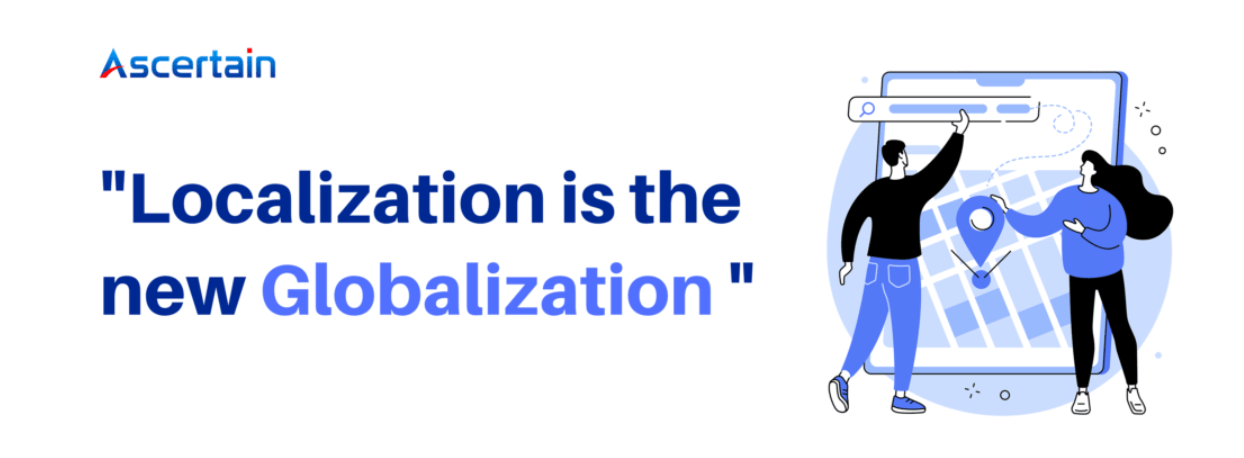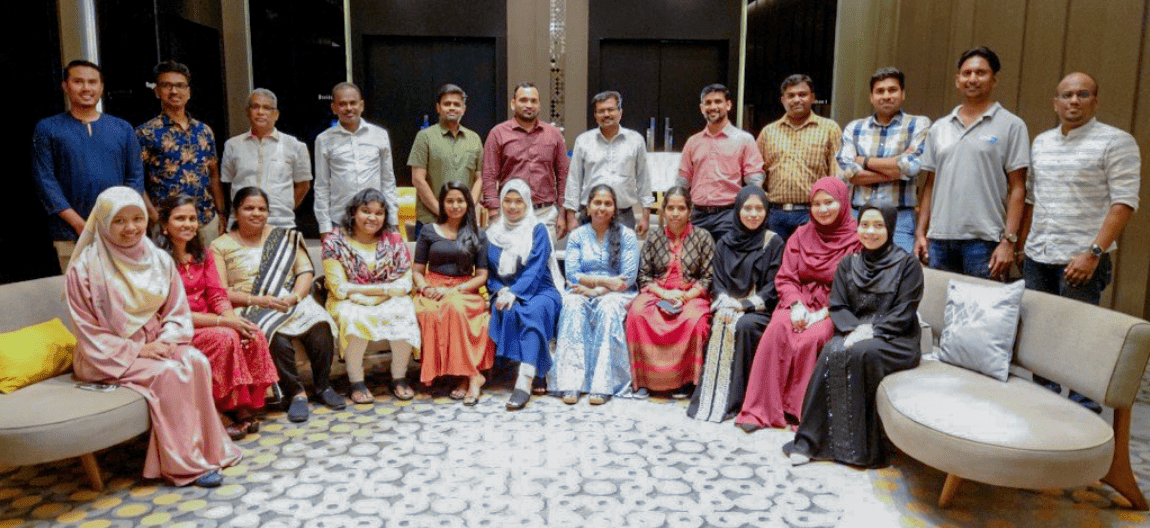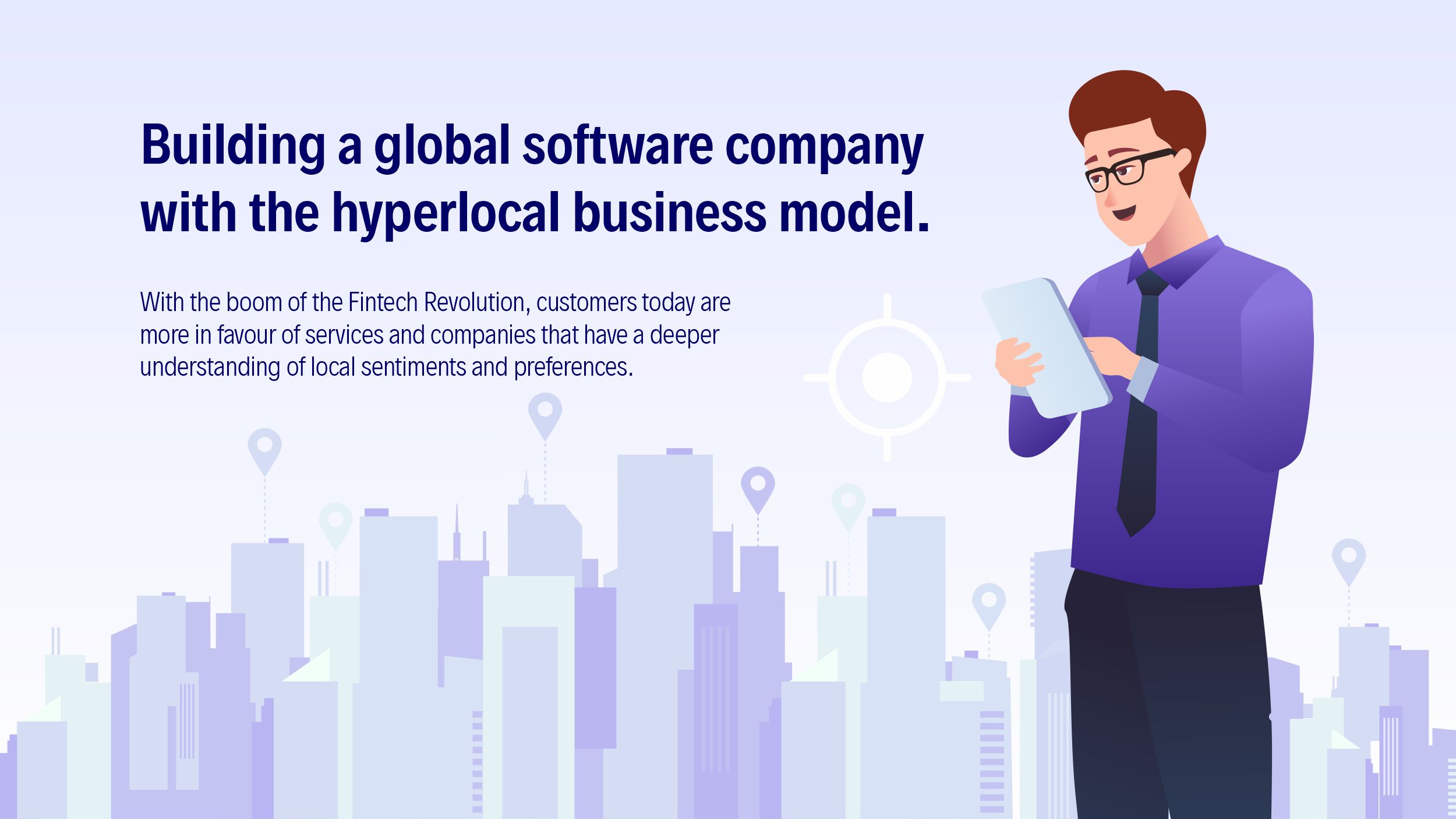Localisation is the new globalisation: How we built a global software company by reimagining the hyperlocal business model
A sound operating model that is able to satisfy the needs and wants of the customers is essential to the success and sustenance of a business in today’s economy. The software industry is no stranger to this trend as it functions as the core enabler of new products and innovation.
We are living in the era of the on-demand economy where from booking a cab to buying groceries, ordering food to medicine delivery, almost everything is expected to be done in real-time, ideally within a few smartphone taps away.
As a measure to stay ahead of the curve in their competitive markets, most consumer and B2C businesses are now riding on the idea of pivoting towards the ‘hyperlocal business delivery model’, thanks to digitalization and the boom in the e-commerce market.
This expectation to receive solutions with a touch of personalization has also grown into B2B industries and support services like business process outsourcing, customer experience, as well as the software products and services industry.
Hyperlocalism: The Backstory of Our Brand DNA
Hyperlocalism: The Backstory of Our Brand DNA
Hyperlocalism: The Backstory of Our Brand DNA
Hyperlocalism: The Backstory of Our Brand DNA
Hyperlocalism: The Backstory of Our Brand DNA
Hyperlocalism: The Backstory of Our Brand DNA
Hyperlocalism: The Backstory of Our Brand DNA
Hyperlocalism: The Backstory of Our Brand DNA
Hyperlocalism: The Backstory of Our Brand DNA
Hyperlocalism: The Backstory of Our Brand DNA
I was first attracted to this application of ‘hyperlocality’ in a business thanks to the grand success of GRAB, one of the world’s largest and fastest-growing internet companies, who executed this game plan to great effect in the countries they operate in. The impressive transformation GRAB has undergone from their humble days as MyTeksi, a taxi hailing app to becoming an indomitable tech giant of sorts today, has been purely driven by the efficiency the company has showcased in managing their respective local markets; heavily influenced by their hyperlocal approach. What’s even more impressive is the fact that Grab has executed this in what is widely regarded as one of the world’s most complex, fragmented and increasingly competitive regions.
With Grab’s success story adding fuel to our ambitions to expand our influence in the software industry, I set out to ponder how we could instill the ideologies of ‘hyperlocality’ to a greater effect in the software sector especially in our domain of expertise, the BFSI (Banking, Financial Services and Insurance) sector.
How much changing or adapting would it take to embrace hyperlocalism and complement the boom of the FinTech Revolution?
How much changing or adapting would it take to embrace hyperlocalism and complement the boom of the FinTech Revolution?
Now, there is no denying that the FinTech Revolution in effect today has slowly transformed almost every aspect of the BFSI industry. As technology and digitization takes the centerstage in almost every industry imaginable today, it is imperative for players in the banking and finance sectors to have a reliable backend support and software ecosystem, in order to deliver significant business results and enhance customer experiences.
Globalization has opened doors for backend support and software solutions services to be conducted from anywhere (this too being heightened by the implications of the Covid-19 pandemic). At such flexibility, the industry is now fast recognizing the need for a paradigm shift to consider the notion that ‘Localization is the new Globalization’.

‘Localisation is the new globalisation’ – What did this mean to us?
‘Localisation is the new globalisation’ – What did this mean to us?
Being subject matter experts in the pioneering of low code Fintech Framework solutions for the BFSI industries, with over 12+ countries using our solutions, Ascertain Technologies takes great pride in being a hyperlocal organization. Our approach and commitment to offer hyper local experience to our clients spread across the globe, has helped us find success in Malaysia, Singapore, India and continue to drive our success across the globe.
“Localised value optimization and the curation of customizable products best suited for local business requirements are two very important components our clients value the most when working with us.”
“Digital-driven companies and startups are raking in millions by simply operating from their living rooms, and here you are championing the need for physical presence in the countries you operate in?”
“Digital-driven companies and startups are raking in millions by simply operating from their living rooms, and here you are championing the need for physical presence in the countries you operate in?”
Truthfully, the above question does seem like a valid point at first – setting up a physical office, running local operations and hiring permanent resources may not necessarily be the topmost priorities of most players in our line of work. It also does no good to your overheads as you incur more costs!
However, if you were to ask me,
Do I regret the decision to have physical offices in the countries we operate in?
No! I would go on to establish that it is our biggest strength as a software enabler.
Do I regret the decision to have physical offices in the countries we operate in?
No! I would go on to establish that it is our biggest strength as a software enabler.
Having envisioned Ascertain Technologies as my passion project back in India (the country which is also home to over 6 million software engineers), I had set sights on bringing this domain expertise and services to cater to then an underserved market – Malaysia. In the early days back in 2008, I was initially toying with this idea of just servicing our Malaysian clientele by just running operations remotely from India – similar to what most of the big players in this industry have been doing.
However, I quickly came to realise that this will not be good for us in the long run. Nothing gives a client the reassurance of knowing that your software, tech and innovation partner is literally one call or visit away, and to have a partner who very much understands and thrives in the local business environment is priceless.
The Total Addressable Market (TAM) in the country underlined further the need for us to invest big in setting up an on-ground office at the heart of the capital. We saw a need to go on the offence and take the divergent path to establish our presence in the Malaysian BFSI market.
Our go-to-market strategy was simple – gain as much local insights, understand the cultural nuances and acquire market-specific knowledge first before even doing sales or business development. It was thanks to this strategy were we able to confidently penetrate the market, face competition and increase our chances of winning in the software ecosystem. This is where hyperlocality again benefitted us tremendously.
For instance, our understanding of the tight regulatory, compliance, Third Party Security Assessment (TPSA) environments as required for the Malaysian BFSI market has helped us to iterate better in managing deployment challenges effectively and elevating customer experiences, one client at a time.
Another big backbone to our hyperlocal success in Malaysia is the building of a strong vendor support and talent acquisition ecosystem locally. To date, we have gone on to hire over 100+ talents, all of whom are highly technical subject matter experts in their respective domains. I am also especially pleased to take great pride in that our talent retention rate is over 90% in the past year.
The secret of our success? It’s all in our workplace culture.
The secret of our success? It’s all in our workplace culture.
Work culture plays an important role in extracting the best out of employees and making them stick to the organization for a longer duration.
“I credit a large part of this successful talent and workplace efficiency to our ‘Work For Yourself’ brand DNA.”
“I credit a large part of this successful talent and workplace efficiency to our ‘Work For Yourself’ brand DNA.”
The idea behind this DNA is correlated to visionary leader Dr. APJ Abdul Kalam’s now famous quote which reads, “Love your job but don’t love your company, because you may not know when your company stops loving you”.

Having once been an employee myself, I resonated heavily with this quote and when setting up Ascertain Technologies, I went on to affirm and openly tell our lovely team members to ‘Work for themselves, Not for the company’. True to this, today, we are witnessing higher levels of commitment in the team with everyone striving to go the extra mile to watch and grow together with the company, inclusively.
With over 14 years in Malaysia and 200+ customers using our services, today Ascertain is one of the fastest growing boutique BFSI software solutioning companies. Through a proven FinTech platform and robust Financial software enablement, we are winning customers’ confidence with each implementation across multiple countries across the globe.
Today, our hyperlocal DNA influences a large part of our work and client servicing culture and we have been privileged to be the preferred tech and software solutions partner for many big name players in the BFSI segment.
Looking back, I am happy that the emphasis we placed in ensuring hyperlocalism during our foundation days has worked out well for us. Globalization has become a heavily romanticized topic especially among the tech and innovation players who are often seeking expansion and new market penetration.
Being subject matter experts in the pioneering of low code Fintech Framework solutions for the BFSI industries, with over 12+ countries using our solutions, Ascertain Technologies takes great pride in being a hyperlocal organization. Our approach and commitment to offer hyper local experience to our clients spread across the globe, has helped us find success in Malaysia, Singapore, India and continue to drive our success across the globe.
With Ascertain, on the contrary,
we chose to re-engineer this convention by placing our bets on the belief that ‘Localization is the new Globalization’.
It only excites me to wonder where Ascertain is destined to go next, but one thing remains a certainty – Wherever we go, our ‘hyperlocal’ DNA will follow. – Ratna.


